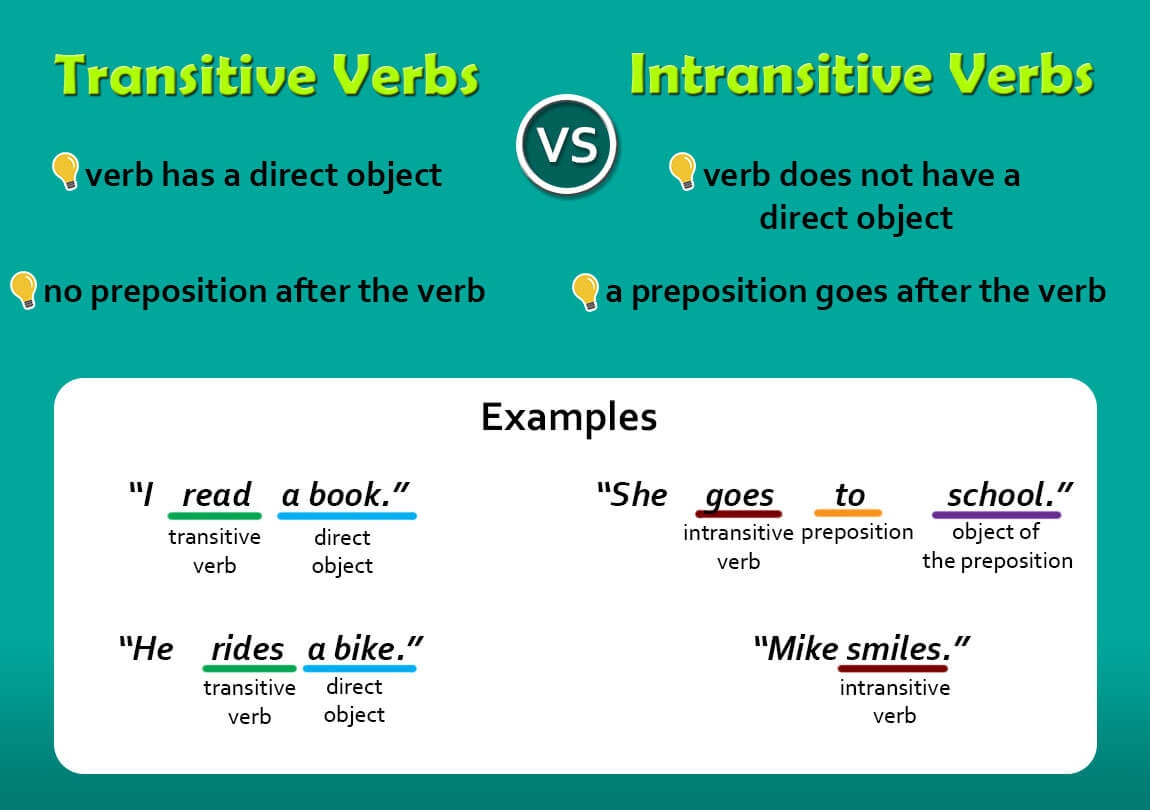Verbs are the backbone of a sentence, and understanding the difference between transitive and intransitive verbs is crucial for constructing meaningful sentences. Transitive verbs require an object to complete their meaning, while intransitive verbs do not. Let’s delve deeper into the examples of these two types of verbs.
Transitive and intransitive verbs play a significant role in shaping the structure and meaning of sentences. By recognizing the distinction between the two, you can enhance your writing and communication skills.
Transitive and Intransitive Verb Examples
1. Transitive Verb Example:
She ate the delicious cake. (The verb ‘ate’ requires an object ‘the delicious cake’ to complete the action.)
2. Intransitive Verb Example:
The bird sings melodiously. (The verb ‘sings’ does not need an object to complete the action; it stands alone.)
3. Transitive Verb Example:
He wrote a heartfelt letter. (The verb ‘wrote’ needs an object ‘a heartfelt letter’ to make sense.)
4. Intransitive Verb Example:
The sun sets in the west. (The verb ‘sets’ does not require an object and conveys a complete meaning on its own.)
5. Transitive Verb Example:
They built a beautiful house. (The verb ‘built’ necessitates an object ‘a beautiful house’ to show what was constructed.)
Understanding the distinction between transitive and intransitive verbs helps in constructing grammatically correct sentences. It is essential to identify the verb’s requirements for objects to convey the intended meaning accurately.
By practicing with various examples of transitive and intransitive verbs, you can improve your writing skills and enhance your language proficiency. Remember to pay attention to the verbs in your sentences to ensure they are used correctly and effectively.
In conclusion, grasping the concepts of transitive and intransitive verbs is vital for mastering the art of language. By familiarizing yourself with examples and understanding their roles in sentences, you can elevate your communication abilities and express yourself more clearly.
